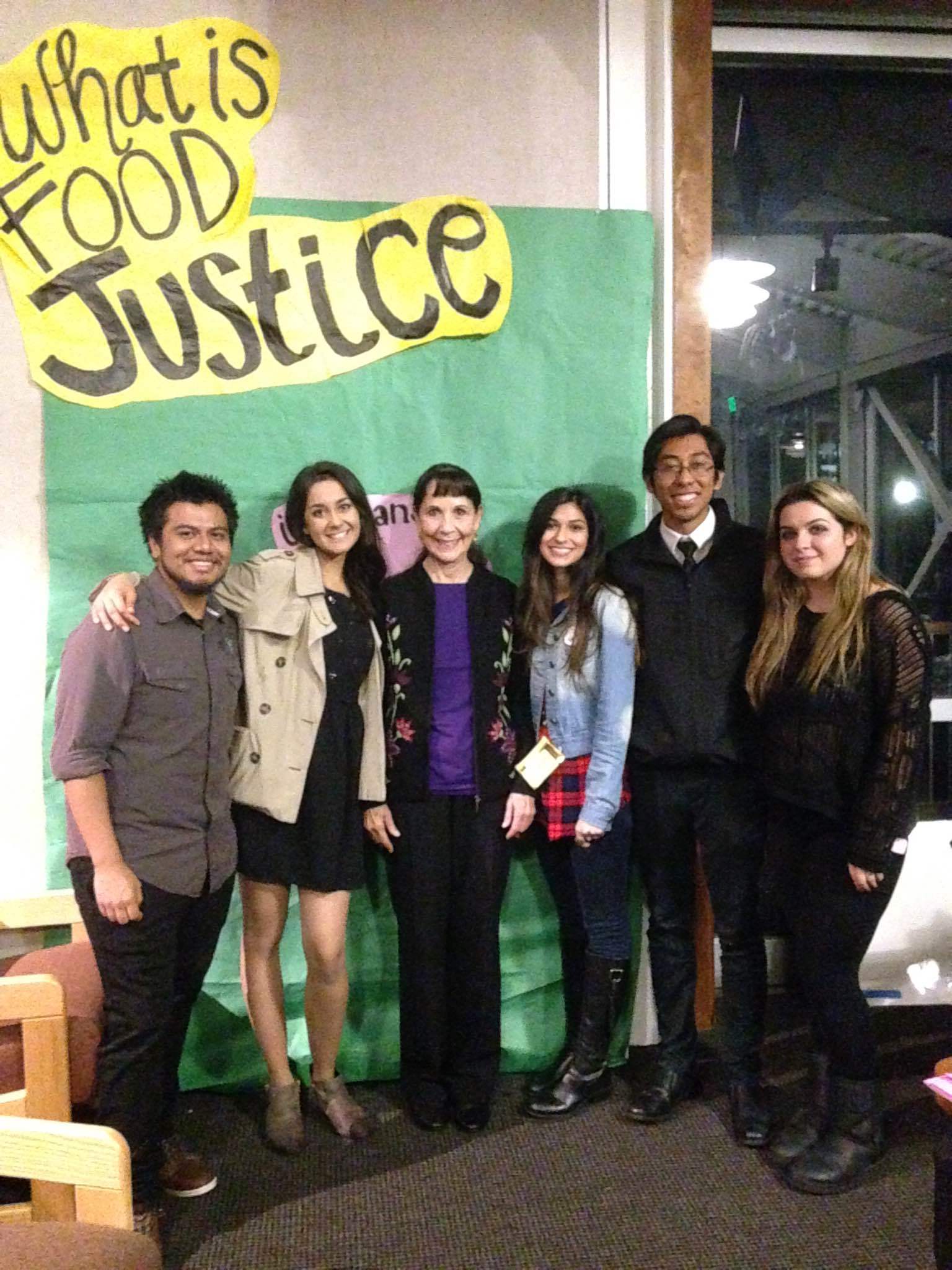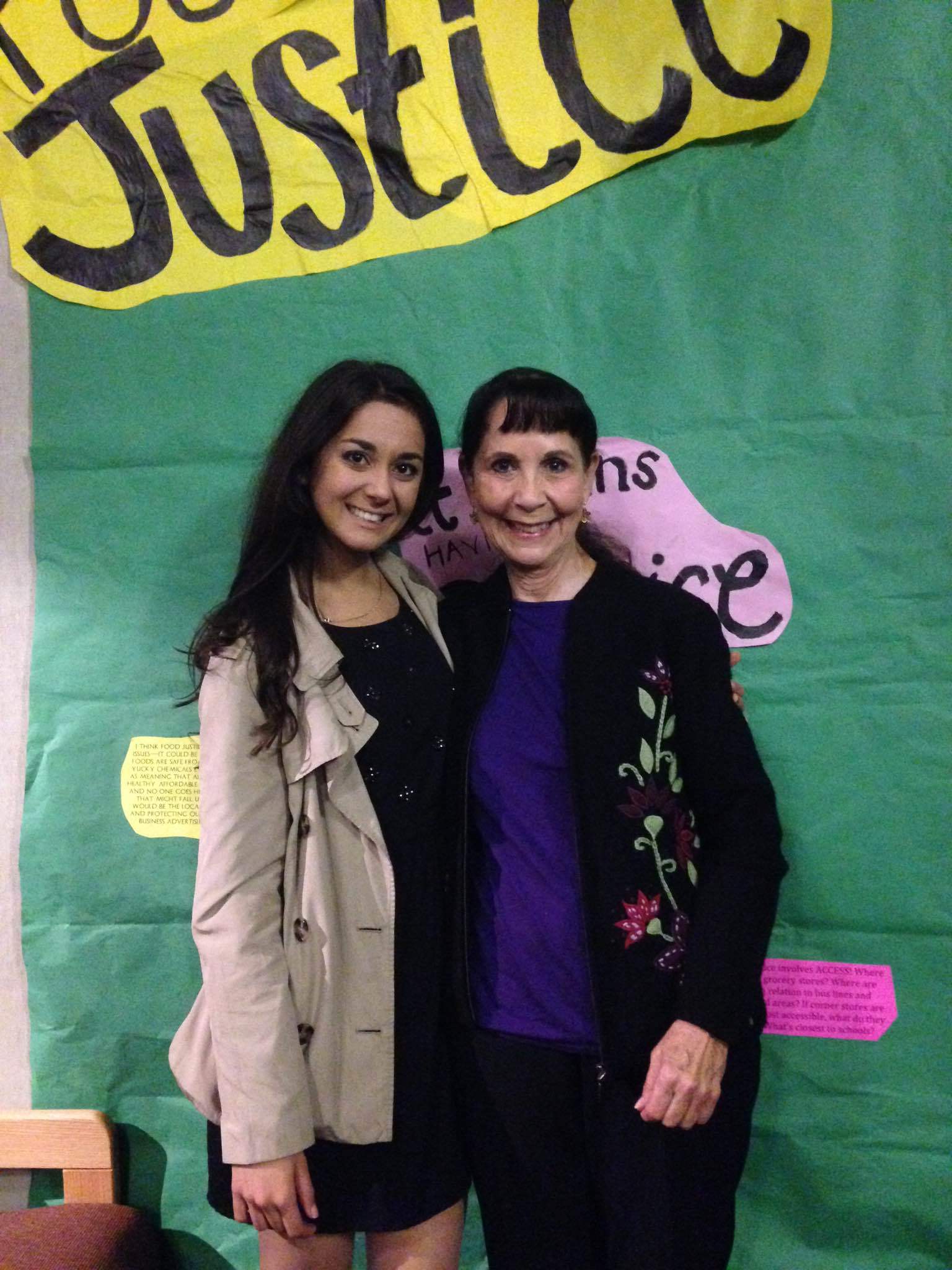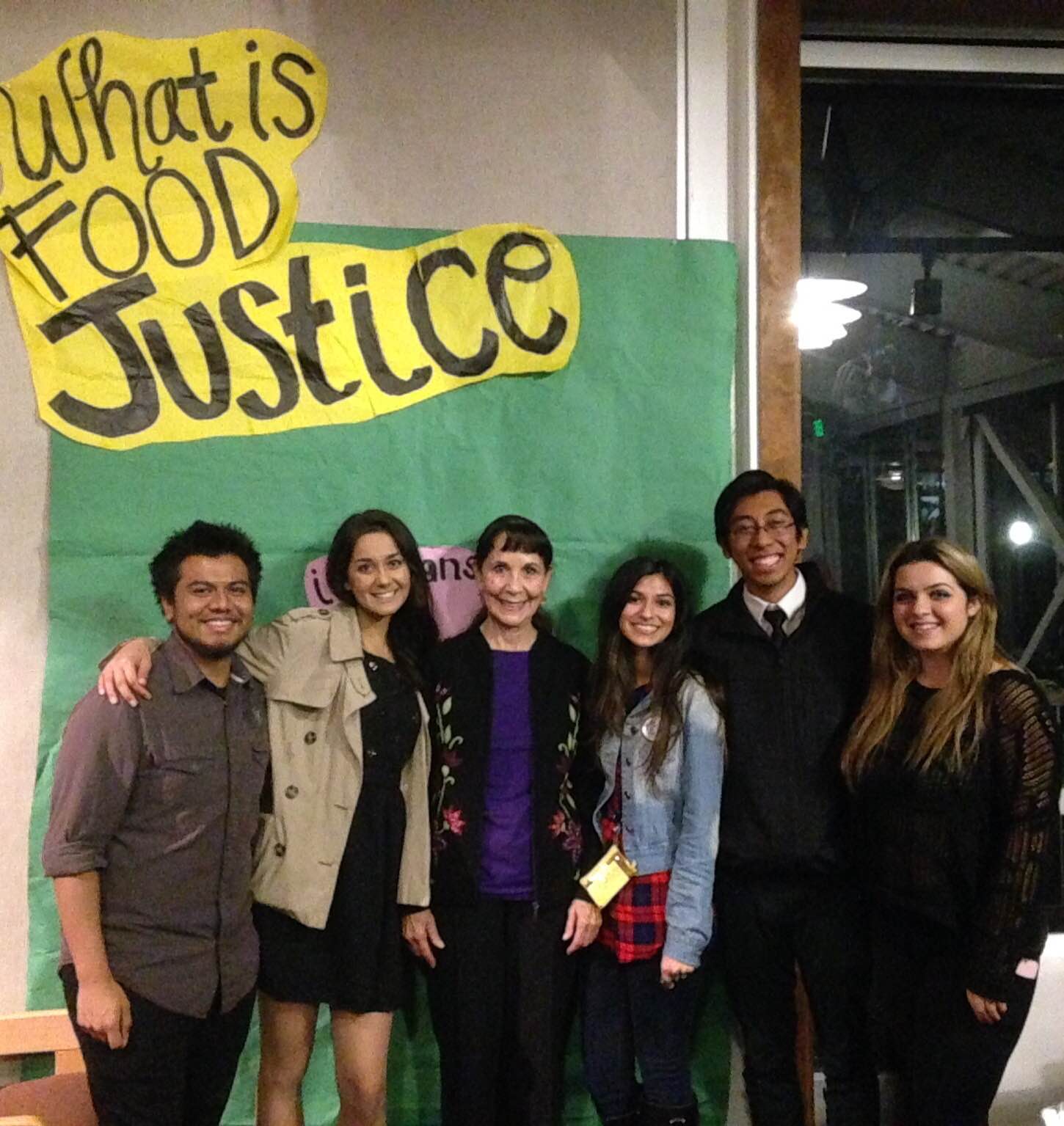Food Justice at UCSC
/On January 29, Dr. Ann Lopez gave a talk on Food Justice at University of California, Santa Cruz. During the talk Dr. Lopez defined what food justice means to her and the Center for Farmworker Families by highlighting some key issues like:
- The Needs of the entire Human Family are Met Worldwide; No More Hunger on the Planet!
- All People Have Access to Healthy, Locally grown, Fresh, Culturally Appropriate Food.
- Living Wage Jobs for all Food System Workers—Farmers, Farmworkers, restaurant, food Service, Processing Plant Workers
- Community Control; NOT Corporate Control of the Food System Through Cooperatives, Faith-Based Initiatives, and Community Organizations
In addition, Lopez spoke about the importance of supporting action that creates change on a global and local level. On the global level, supporting Food Justice Certified Farms like Swanton Berry Farm and Pie Ranch is great way to align your money with your values, while helping create an environment that takes into consideration the life of the workers involved.
What is Food Justice Certified?
Food Justice Certified is a label based on high-bar social justice standards for farms, processors, and retailers, including every link in the food chain from farm to table. Our approach is holistic; we ensure fair treatment of workers, fair pricing for farmers, and fair business practices. Food Justice Certified is designed for all agricultural production systems, fiber and cosmetics as well as food.
The Food Justice certification focuses on these standards:
- Workers’ rights to freedom of association and collective bargaining
- Fair wages and benefits for workers
- Fair and equitable contracts for farmers and buyers
- Fair pricing for farmers
- Clear conflict resolution policies for farmers or food business owners/managers and workers
- The rights of indigenous peoples
- Workplace health and safety
- Farmworker housing
- Interns and apprentices
- Children on farms
Not yet included in this certification is how animals are treated, but there is a growing movement addressing these issues.
Living in the Framework of Oppression
On the local level, Dr. Lopez went into detail about the work Center for Farmworker Families and how people can get involved with any of the projects and ended with what work is on the horizon:
- Socially just, organic CSAs
- Working to change the 50 Mile regulations at the state-run migrant camps.
- work to ensure a 1-mile agriculture buffer zone around schools so that children are not exposed to often deadly pesticides while at school.
She also spoke about the conditions of the farmworkers and the Framework of Oppression that they live in. Here is a quote from her talk.
"Farmworkers live in what I call a Framework of Oppression. Slavery was banned in this country in 1865. However, today, instead of a white owner owning black slaves, what we have is a series of laws, policies, regulations and institutions that keep Mexican farmworkers caught in a Framework of Oppression and from which escape is nearly impossible.
A good example is Agricultural Exceptionalism. Whereas workers in manufacturing and other lines of work are protected by the National Labor Relations Lawsand the Fair Labor Standards Act, farmworkers are protected by neither. Basically, farmworkers are at the mercy of the corporation and those in charge of managing farmworkers. Racism and sexual abuse are rampant. Depending on the resource and report used, between 60 – 80% of women farmworkers are consistently sexually harassed and/or assaulted in the fields.
Farmworkers must endure:
- Poverty, caused by poor compensation for very difficult work
- Poor diet
- Regular Exposure to Pesticides at Work
- Crowded substandard Housing and often Unsafe Transportation
- Exclusion from Unemployment Insurance
- Prevention of Collective Bargaining
- Forced Labor Abuses
- Lack of Workers’ Compensation Protections
- An Average Life Expectancy of only 49 years.
The Purpose of the Center for Farmworker Families is to promote awareness about the difficult life circumstances of binational families while proactively inspiring improvement in binational family life; both in the United States and in Mexico. If you are interested in learning more please sign up for our newsletter to receive updates and how you can get involved












